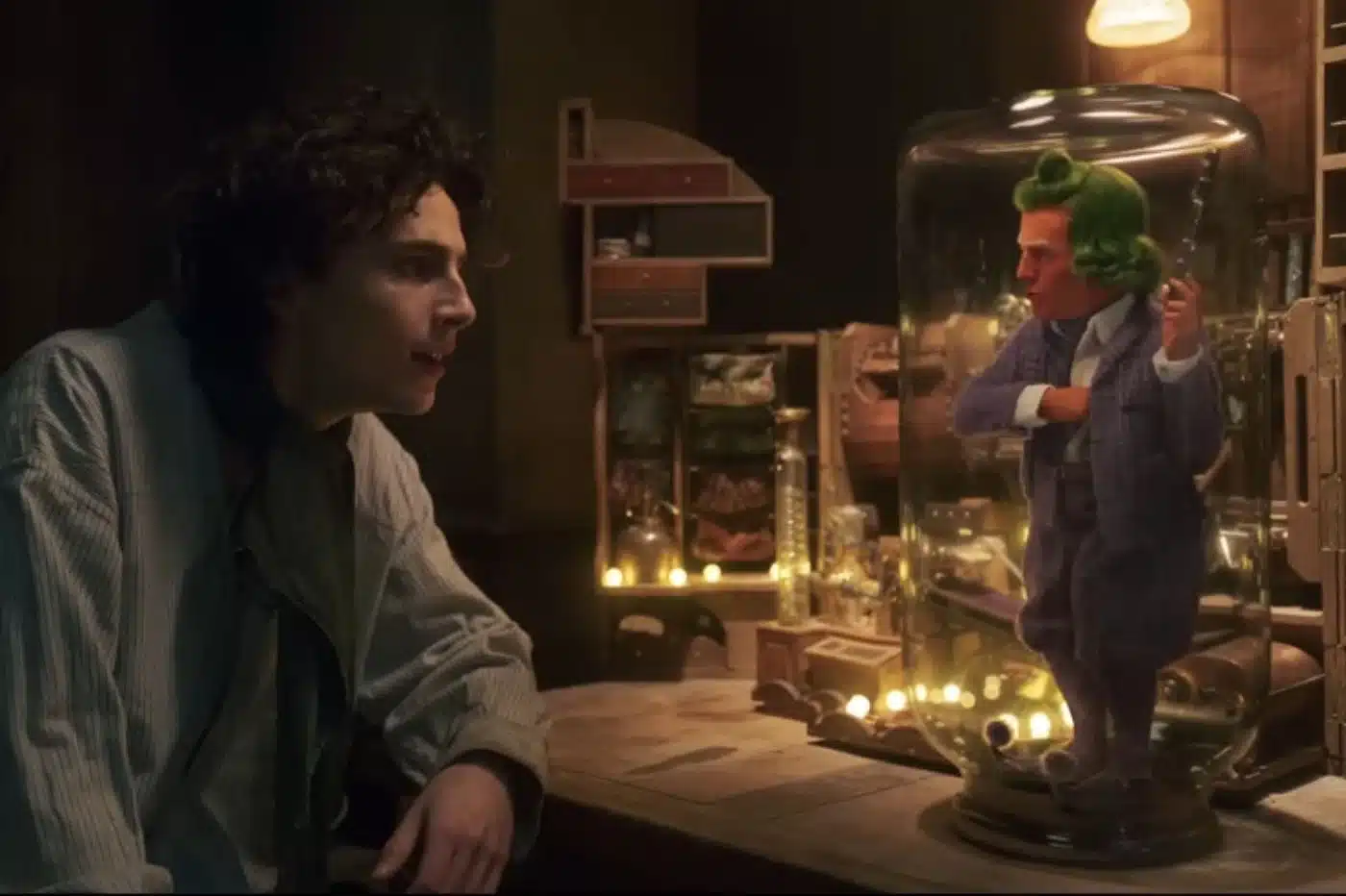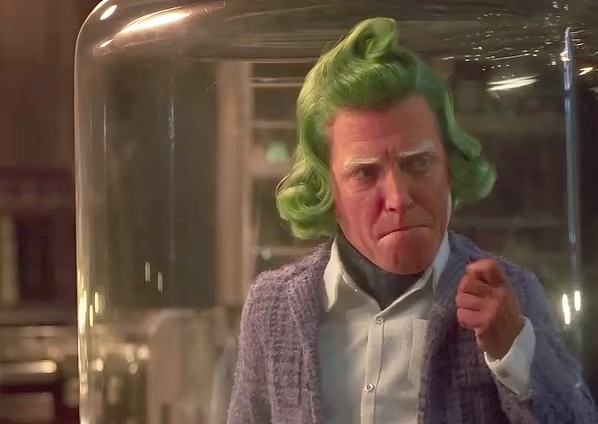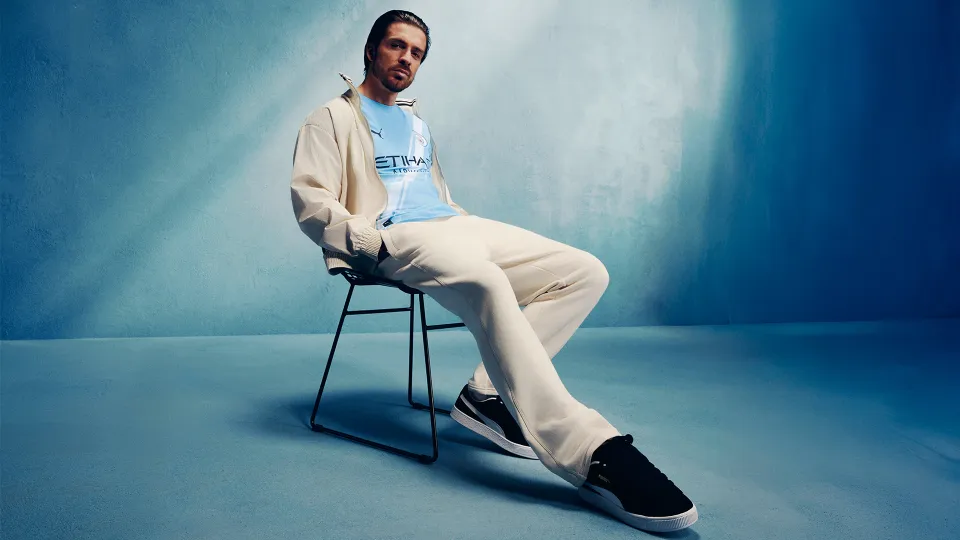In Wonka, Hugh Grant plays a small, mischievous Oompa Loompa who initially spies on a young Willy Wonka (played by Timothée Chalamet) and eventually becomes his partner in chocolate. It sounds whimsical. But for Grant, the experience was far from sweet.
The process of becoming an Oompa Loompa wasn’t as simple as a costume and makeup. Director Paul King opted for motion capture technology to digitally shrink Grant and transform him into the character. That meant the actor had to wear a special suit covered in sensors to track his movements—a process that Grant likened to torture.
“It was like a crown of thorns. Very uncomfortable,” he said. “I made a big fuss about it. I couldn’t have hated the whole thing more.”
The suit wasn’t just tight or awkward; it was emblematic of everything Grant despises about modern film production. The reliance on CGI, green screens, and digital magic left him feeling lost—and more than a little grumpy.
Confused by Technology and Direction
Beyond the physical discomfort, Grant’s main issue was with the ambiguous demands of motion capture acting. “I never received a satisfactory answer about whether to act with my body or not,” he said, genuinely baffled.
He confessed he didn’t know what the cameras were capturing or how his movements would translate on-screen. “What I did with my body was terrible,” he admitted with his usual self-deprecating humor. “I’m convinced it’s all been replaced by an animator anyway.”
This uncertainty led to an emotionally disorienting experience. Grant, known for his sharp instincts and controlled expressions, was working without the usual cues that guide a performance. It’s no wonder he felt adrift.
Why Did He Say Yes? Hugh Grant’s Refreshingly Honest Answer
Not a Passion Project
You’d think an actor would only sign on to such a high-concept, effects-heavy film because of a deep love for the material or a desire to reach younger audiences. Not Hugh Grant.
“I slightly hate [making films],” he said, shrugging. “But I have lots of children and need money.”
That sentence could only come from Grant. It’s blunt, unfiltered, and very on-brand. While most actors are coached to stick to praise-heavy soundbites during press tours, Grant remains delightfully immune to the Hollywood PR machine. His honesty is, in a strange way, a kind of performance art of its own.
He’s not pretending to love the job. He’s not pretending to love the costume. He’s not pretending to understand the technology. But he did show up, suit up, and get the job done. That says more about his professionalism than any glowing interview could.
CGI Confusion and the Bear Question
Grant’s Broader Complaint About Technology in Modern Cinema
In an age where nearly every big-budget movie relies on CGI, Grant isn’t shy about how alienating he finds the process. “With CGI now, you can’t tell what’s going on,” he said.
This wasn’t his first experience working with director Paul King and the world of computer-generated creatures. In Paddington 2, Grant played the villain Phoenix Buchanan, opposite a digital bear. He recalls a moment with his father during that film when the older Grant leaned over and asked, “Is that a real bear?”
That anecdote sums up Hugh’s attitude: the magic of modern moviemaking can be so convincing—and so reliant on technology—that even the actors involved feel disconnected from the results.
Grant’s discomfort is rooted not in laziness or entitlement, but in a longing for clarity and craftsmanship. He wants to know what he’s reacting to, what’s being filmed, and what’s going to end up on screen. In the increasingly VFX-driven landscape of Hollywood, that kind of transparency is harder to come by.
Why Hugh Grant Was Perfect for the Role
Casting Sarcasm: The Director’s Vision
Despite Grant’s vocal displeasure, director Paul King maintains that he was always the perfect choice for the role. In fact, it was Grant’s signature blend of arrogance, wit, and smugness that inspired the casting.
In Roald Dahl’s original Charlie and the Chocolate Factory, the Oompa Loompas are not cuddly, child-friendly characters. They’re judgmental, superior, and brutally sarcastic. King wanted someone who could bring that energy to life—and thought of Grant almost immediately.
“They’re incredibly sarcastic and judgmental and cruel,” King said of the Oompa Loompas. “So I was really just thinking about that character; somebody who could be a real shit, and then—ah, Hugh!”
It’s a backhanded compliment, but an accurate one. Grant’s ability to play smug, cantankerous characters with just enough charm to stay likable is well-documented. His Oompa Loompa isn’t warm and fuzzy. He’s wry, cynical, and full of attitude—just like Grant.
Critical Reception: Grumpy, But Glorious
Critics Loved His Performance
Despite his own disdain for the experience, critics praised Grant’s performance in Wonka. Vanity Fair’s Richard Lawson called the film “surprisingly scrumdiddlyumptious” and singled out Grant for “impressively maintaining his dignity” as an Oompa Loompa.
Other reviews echoed that sentiment. Audiences appreciated the unexpected contrast between Chalamet’s wide-eyed, dreamy Wonka and Grant’s deadpan, sardonic Loompa. The chemistry worked, not in spite of Grant’s attitude—but because of it.
His refusal to play it cute gave the role edge. His sarcasm grounded the film’s flights of fancy. In a world of sugar-coated whimsy, Grant brought the necessary bitterness to balance it out.
Did He Have Any Fun?
A Glimmer of Enjoyment
In his press conference rant, Grant did offer one small concession: he had fun improvising.
“It was quite fun, messing around and trying new lines,” he admitted. That small crack in the grumpy facade is revealing. Despite the uncomfortable suit, the confusion over CGI, and his general distaste for the process, Grant found moments of creativity and spontaneity on set.
He may never admit to liking the role outright—but clearly, something about the experience didn’t completely sour him.
Grant’s Loompa Legacy: Why His Misery Made the Magic
The Reluctant Genius of Hugh Grant
There’s a strange, almost poetic irony to Hugh Grant’s performance in Wonka: the fact that he hated every minute of it is exactly why it worked.
His disdain fueled the character’s aloof detachment. His confusion enhanced the weirdness of the role. His sarcasm gave the film bite.
Grant didn’t phone it in. He showed up, gave a precise and funny performance, and helped elevate a whimsical musical into something sharper and more memorable. His natural grumpiness became a kind of method acting—whether intentional or not.
It’s not unlike Gene Wilder’s original Wonka, who walked the line between charm and menace. Grant’s Loompa walks that same tightrope, adding depth and humor in the most unexpected places.
What It All Means for Modern Movie-Making
Can Actors Thrive in the Age of CGI?
Grant’s experience raises a broader question: are traditional actors being left behind by the wave of digital filmmaking?
The tools of performance are changing. With green screens, motion capture, and AI-assisted editing, actors often perform in a vacuum. For someone like Grant, who thrives on directorial feedback and clear storytelling, this can be alienating.
He’s not alone. Many actors, from Anthony Hopkins to Ian McKellen, have expressed frustration with acting in front of green screens. The craft is evolving, and not everyone loves the direction it’s going.
The Value of Resistance
But maybe that’s why voices like Grant’s are important. His resistance reminds filmmakers to prioritize clarity, intention, and actor support—even in the most high-tech environments.
It’s also a reminder to audiences that the magic of cinema doesn’t come from CGI alone. It comes from the weird alchemy of grumpy actors, visionary directors, and a whole lot of uncomfortable suits.
Final Thoughts: Grumpy Is the New Delightful
Hugh Grant may not have enjoyed playing an Oompa Loompa—but his misery became movie magic.
Whether he likes it or not, his performance added something unique to Wonka. His deadpan delivery, sardonic energy, and utter confusion about the filmmaking process made his Loompa unforgettable.
So next time you see that little orange man sing a sarcastic ditty while glaring at Timothée Chalamet, remember: behind the pixels and performance capture lies a grumbling British actor doing his best to suffer through it all—for art, for money, and for us.
And let’s be honest—it wouldn’t have been nearly as good if he’d actually enjoyed it.
- Man City drop Jack Grealish transfer hint as they launch stunning new kit for Club World Cup - June 5, 2025
- Madison Beer Shares Cheeky Bath Photo in Oscars Party Post - June 5, 2025
- Willow Name Meaning - June 5, 2025






